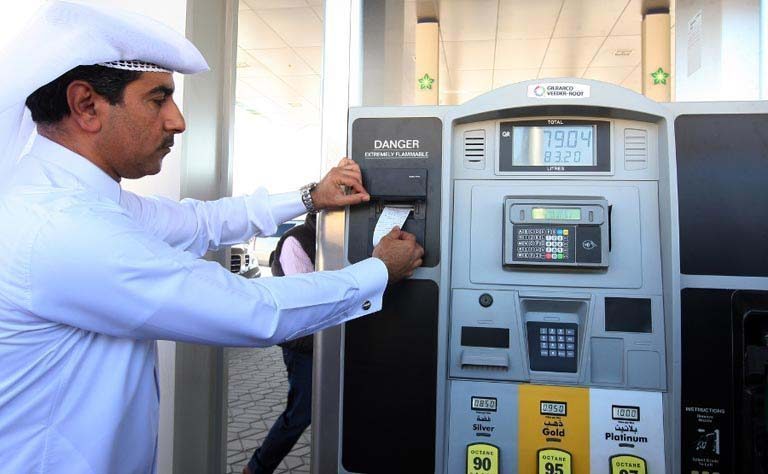
Qatar’s government stands to bring in an extra QR740 million in fuel revenues each year thanks to higher petrol prices, according to Doha News calculations.
That means that though the rising cost of petrol may only be putting residents out a few riyals a week, the windfall turns out to be a significant one for the Gulf state.
Using June’s petrol prices and 2015 sales figures, calculations show that Woqod stands to collect more than QR742.65 million (US$204 million) in revenue this year.
That’s nearly enough to buy two Airbus A320neo planes at list prices, to use one example.

Locally, that amount of money would also cover half of Qatar’s annual bill for its share of the operating costs of the six US universities at Education City.
However, the sum only puts a small dent in Qatar’s budget deficit, representing 1.6 percent of the QR46.5 billion shortfall that Qatar projected it would run this year.
Still, experts have hailed the higher prices as a sign that Qatar is putting its financial house in order.
Rethinking subsidies
Qatar has historically heavily subsidized the price of petrol for motorists here.
However, late last year, government leaders began warning residents that the country needed to rethink its generous policies in the face of lower global oil prices, which have drastically eroded the state’s revenues.

In early November, Emir Sheikh Tamim bin Hamad Al Thani said the government could no longer “provide for everything.”
That message was followed a week later by an address from Qatar’s Minister of Development Planning and Statistics, who said there is an “urgent” need for the country to seek new revenue sources and rethink its subsidy programs.
Then in January, petrol prices went up 30 to 35 percent overnight.
And in April, the Ministry of Energy and Industry said it would set a new retail price for petrol each month to reflect changes in global oil markets.
By the numbers
This month, motorists are paying QR1.2/L for premium (regular) – up from QR0.85/L at the start of the year – and QR1.3/L for super, which is up from QR1 before prices started to rise.
The country consumed 975 million liters of regular gasoline and 1.34 billion liters of super gasoline last year, according to Woqod’s 2015 annual report.

Multiplying these volumes by the change in prices suggests that Woqod stands to collect an additional QR742.65 million annually.
The actual figure is likely to be much higher, given Qatar’s rising population and the company’s growth.
Woqod said its gasoline sales last year were 9 percent higher than in 2014.
Thoughts?







